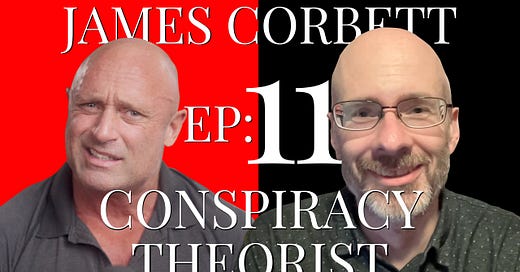
The unsung, and sadly neglected, English classical liberal philosopher and MP Auberon Herbert (1838–1906) coined the term “voluntaryism” to describe his concept of the voluntary state. The voluntary state stands as something of a mean between the two dominant conceptions of the state characteristic of contemporary libertarianism: the minarchist state of classical liberalism and the stateless society of anarcho-capitalism.
The minarchist state, exemplified by Ludwig von Mises, F.A. Hayek, Ayn Rand and Robert Nozick, envisages a state that monopolises violence and employs coercion for the limited purposes of safeguarding individual liberty from violence, aggression and fraud (Hayek also supported a limited welfare state).
The stateless society of anarcho-capitalism, exemplified by Murray Rothbard and Hans-Hermann Hoppe, regards the very notion of the state, with its coercive powers, as illegitimate and immoral, envisaging instead a society in which commercial enterprises take care of violence, aggression and fraud on a fee-for-service basis.
Herbert set out the principles of his voluntary state in the 1897 pamphlet “The Principles of Voluntaryism and Free Life.” He began with “the self-ownership of men and women, and their full right to direct their faculties and employ their own property (within the one limit of non-aggression by force or fraud upon others) as they choose.” This is an early articulation of the foundational libertarian principle of self-ownership, widely attributed to John Locke, although he did not use the “self-ownership” specifically.
On the basis of the fundamental precept of self-ownership, Herbert outlined the principle of the voluntary state in these terms: “the State should compel no services and exact no payments by force, but should depend entirely upon voluntary services and voluntary payments.” It is on this point that we encounter a most interesting contrast with minarchist and anarcho-capitalist conceptions of the state. Herbert’s vision of the state encompasses a much broader scope of function and operation than typically found amongst minarchists (the question of scope and function is obviously moot for the anarcho-capitalist). The state, Herbert contended, “should be free to conduct many useful undertakings, in connection with education, sanitary matters, poor relief, insurance, post-office business, trade, inspection of buildings, machinery, etc., and many other matters.” Herbert apparently saw no limit to the potential scope of state function and operation, which, prima facie, might seem to place him in the orbit of big government.
However, Herbert was implacably opposed to taxation in “all its form.” Indeed, he devoted more space in The Principles of Voluntaryism and Free Life to objections to taxation—30 in all—than he did to expounding the concept of the voluntary state. This gets to the nub of the voluntaryist conception of the state. Its distinguishing mark is not the type and scope of functions performed by the state, but rather the way the state is constituted and funded.
In this case of voluntaryism, the state consists of services and functions performed by voluntary associations funded by voluntary financial contributions. In such a model, the functions performed by the state are determined by the needs and desires of those willing to fund them. This puts the unlimited scope of state action into perspective. The people in a voluntary society can choose to co-invest and financially support absolutely any function currently performed by the coercive nation-state, provided the funders deem the service worthy of investment, and provided no coercion is involved in either the funding or the activity itself. Herbert seemed to believe that most of the functions performed by the state in his day could be funded voluntarily.
But doesn’t this just amount to anarcho-capitalism by another name? That is certainly one interpretation if one reads contemporary voluntaryists like Larken Rose, who wrote the influential self-published book, The Most Dangerous Superstition (2012), in which he uses a voluntaryist ethics to argue for a stateless society, a la anarcho-capitalism (although he studiously avoids the term). After all, if all “state” institutions and functions are funded by voluntary financial contributions and cannot employ coercion to realise their ends, isn’t this just anarcho-voluntaryism in which the only meaningful difference with anarcho-capitalism is that key social functions are performed by voluntary not-for-profit associations rather than profit-making enterprises? In what sense is Herbert’s voluntary state a state at all, as opposed to a voluntary association?
Both the term and concept “anarcho-capitalism” originates with Murray Rothbard in the 1960s and 70s, thus postdating the life and times of Herbert. Still, Herbert was clearly aware of the anarchistic implications of his voluntary state to such an extent that he felt the need to address the issue directly in The Principles of Voluntaryism and free life. Herbert’s voluntary state would, he believed, be decentralised as local communities pooled their resources together to solve local challenges. Who in their right mind was going to fund a service in some community with which the funder had no ties or interests? Herbert envisaged a system of pluralistic competition and experimentation as centralised state institutions devolved in the absence of a coercive tax base to fund them. Although this decentralised voluntary “state” is described as such, Herbert was patently aware that this looked more like an absence of the state than a decentralised state. So, he was at pains to explain that this really wasn’t any kind of anarchism, in the sense of “no government,” because there would still be, he predicted, some authority to coercively constrain serious crime (murder, theft and “certain course forms of fraud”). Tellingly, Herbert claimed that Tolstoy was “the only real anarchist” because he preached as Christ did that “we should bear all injuries without returning them.”
The fact is that Herbert had a minarchistic conception of the state when it came to dealing with serious crime: force was the only viable means of restraining force, exactly the rationale for the night-watchman state. There are differences, however, between the voluntary state and the night-watchman state. Minarchists like Mises assumed that the state ought to exert its apparatus of coercion and compulsion for the limited purpose of protecting negative liberty through the mechanism of a national government. Herbert, though he did not elaborate, appears to have envisaged local voluntary associations performing all civil services, including voluntarily staffed and funded mechanisms for local policing. It is possible that he assumed something like the nation-states of his day would continue to exist, withing the paradigm of some collective (and voluntary) defence association, albeit with the majority, perhaps all, traditional government functions devolved to the local level. (In theory, individuals in different towns could voluntarily pool their resources for common services, which would not violate the principles of voluntaryism).
The classical liberal Mises, by contrast, in his 1927 book Liberalism argued in support of minimal coercive taxation, and even conscription, to maintain a national government with a monopoly on violence and the ability to employ coercion to defend individuals from aggression, internal and external. He thought the state had a moral duty to coercively stamp out all asocial elements that threatened social cooperation, the lifeblood of a genuinely free society, i.e., one with minimal government institutions.
The difference between Herbert’s voluntary state and Mises’s minarchist “apparatus of coercion and compulsion” is that the former is a form of voluntary local government (not really a state per se, although Herbert insisted on the language, likely to avoid associations with anarchism, while the latter is a national government with very limited scope and function. On the other hand, the key difference between Herbert’s voluntaryism and anarcho-capitalism appears to be the nature of the association that employs crime-preventing coercion and how it is funded: voluntary associations funded by voluntary (charitable) contributions in the case of voluntaryism and businesses that provide services for a fee in the case of anarcho-capitalism.

















If Mises and Herbert are both classical liberals, the former arguing for "a national government with very limited scope and function" and the latter "a form of voluntary local government, not really a state per se", classical liberal is big tent. Could it be possible that there are three libertarian camps: classical liberal (Hayek, Friedman), minarchist (Herbert, Rand) and anarcho-capitalist (Spooner, Rothbard)? If yes, in which of the three would you place von Mises?